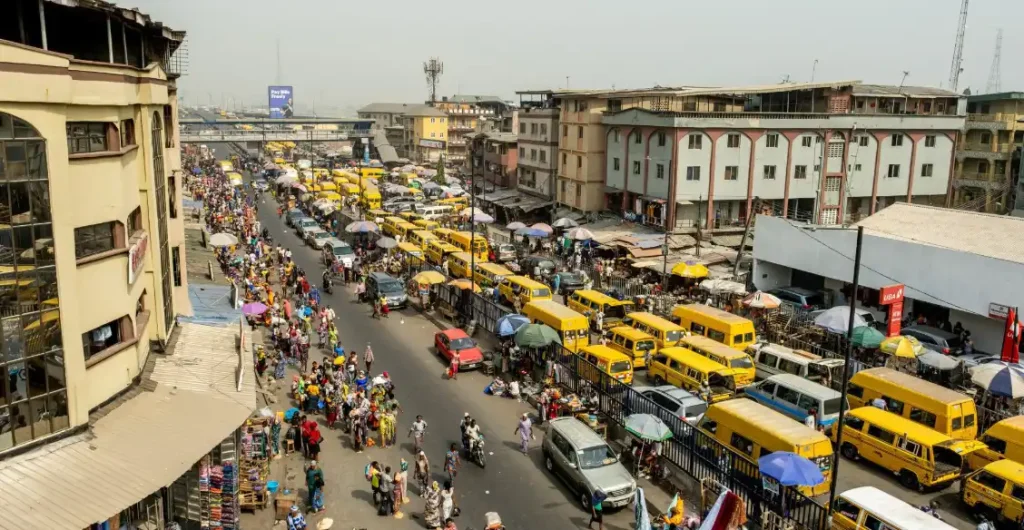Being a product manager at a fintech company means two things to Sodiq Idowu: endless strategic meetings with different teams to create value for the business and its customers, and dealing with the troubles of working from the most stressful city in Africa, Lagos.
Sodiq has lived all his life in Lagos, yet he finds the city troubling. For the engineering graduate who secured his job in his final year in the university, commuting from Epe on the outskirts of Lagos – where he schooled – to his workplace on the Island was particularly challenging, as he had to spend productive hours stuck in traffic, a daily ritual for most Lagosians — albeit with consequences.
As he puts it, “Tech bro-ing in Lagos is a struggle”.
Lagos loves tech
Lagos, thanks to its seeming potential and the many opportunities it offers, is no doubt the hub for technology in Nigeria and Africa. The old neighbourhood of Yaba, for instance, takes pride in midwifing many success stories in the Nigerian tech space.
Described as the Silicon Valley Of Africa, the nation’s economic capital houses a multitude of successful tech start-ups on the continent as well as an atttractive tech hub.
Think of a listed company like Jumia, Africa’s Largest e-commerce company and Paystack, the fintech acquired for a reported $200 million by U.S. payments giant Stripe. They were launched in Lagos within the past 2 decades.
Even, Africa’s leading payment technology company, Flutterwave runs its operations from Lagos.
Surviving traffic
Lagos is synonymous with traffic congestion.
Every day, Lagosians hit the roads as early as 4 A.M not because they don’t enjoy their sleep, but because it is what the city demands, due to its sweltering traffic jams.
Not only do commuters get to endure longer hours on the road before getting to their destination, but they also get to deal with the effects on their mental and physical health.
Tech bros aren’t immune to this daily struggle. Saheed Ibrahim, a software developer, works hybrid, meaning he has to go to work twice in a week. What is supposed to be a 30-minute journey from his Gbagada residence to his workplace at Victoria Island sometimes morphs into one of two hours, thereby affecting his productivity at work.
Battered social life
If there is anything all tech bros would agree on, it has to be the demanding nature of their job. Though the tech ecosystem pride itself in offering great pay, flexible work condition and other perks, workers still have to face the pressure to work long hours, be consistently productive, and meet urgent deadlines.
These, of course, affect their social life, causing loneliness and relationship struggles.
For Kazeem Oladimeji, a full-time system analyst, his job demands that he works every day including weekends, forcing him to carry his laptop everywhere he goes.
Ayo Olosunde, a software engineer, says his romantic relationship is up and running, only because of his partner who understands the rigours of his job and the fact that he might not be the regular dotting boyfriend.
But Zipa, a brand/product manager, believes that despite the long work hours, striking a balance between work and personal/social life is one skill every tech bro should learn, adding that “time management and the power of delegation are important”.
Expensive living and bills
Kazeem says he spends about 21% of his monthly income on transportation alone, adding that by the time he makes the deduction of all expenses he incurred in the month, he’s left with a meagre 11% to himself.
However, his plight isn’t surprising. Lagos is ranked as the second most expensive city in Africa to live in, and among the top 20 globally.
The recent data from the National Bureau of Statistics (NBS) showed that the inflation rate in Nigeria hit over 20% in August, the highest figure since 2005. With inflation comes a high cost of living usually reflected in the soaring prices of food items, energy, transport and other household consumables. And when you add the rapidly increasing cost of accommodation in a densely populated city like Lagos, what you get is a sad situation.
Working in darkness
“Asides from government regulations, one of the biggest problem of Nigeria;s tech growing sector is electricity,” says Yusuf Balogun, a programme manager at a startup that trains exceptionally talented Africans in globally viable tech skills.
He isn’t wrong. In August, electricity workers shutdown the national grid to press home their demands to the Transmission Company of Nigeria (TCN), throwing the nation into darkness. Though the federal government intervened and had power restored, the power outage already took a huge toll on Nigerians – including tech bros.
And Lagos, for one, already has an intractable relationship with epileptic power supply, forcing residents to seek alternative means.















